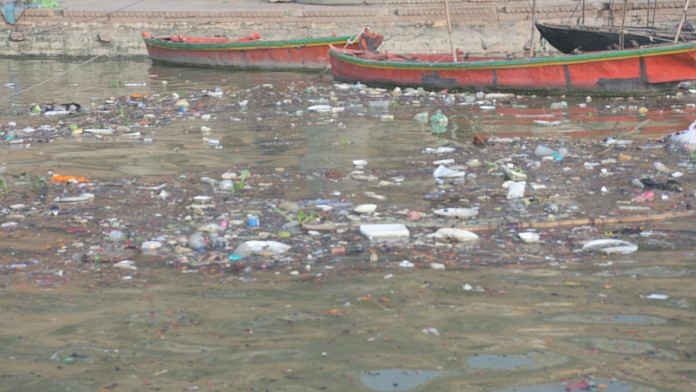Even as the world grapples with the novel coronavirus pandemic, India has, in just the past few weeks, been at the receiving end of two cyclones, one of which has caused deaths and severe damage, a locust invasion of the kind that hasn’t been seen since the 1990s and at least 10 incidents of low-intensity tremors in the capital since mid-April.
All of these are warning signs that rampant deforestation, reckless construction and accelerated climate change due to human activity are now extracting their cost.
At such a time, World Environment Day becomes all the more important as a time to make some deep, long-lasting changes to our lifestyle and consumption patterns. It is also a good time to examine and applaud the contribution of those who are actively attempting to mitigate the negative effects of what we do. ThePrint looks at five Indian startups that are, in extremely different ways, working towards a greener, safer future for us all.
Also read: Coronavirus pandemic can finally bring an end to our exploitation of the ocean
Aarohana Ecosocial Developments
The brainchild of two IT professionals Amita Deshpande and Nandan Bhat, Aarohana focuses on areas of waste management, clean energy, water conservation, sanitation, education and health, and all its efforts are tied together through sustainable livelihood generation. Deshpande and Bhat met as part of a trekking group. “During the trek, they used to see so much plastic lying around, which doesn’t even get the ragpickers money, unlike metal and glass,” Shivalika Mohan, the communications manager of the company, tells ThePrint.
Aarohana was started in 2013 with the aim of upcycling non-biodegradable and non-recyclable plastic into fabric and art. “The up-cycling is done manually and no chemicals or heavy machinery are used,” says Mohan. The Pune-based startup provides employment to tribal people in a remote village of Dadra and Nagar Haveli, who spin traditional charkhas to make fabric, accessories and home decor items through waste plastic. Deshpande herself belongs to Dadra Nagar Haveli and wanted to generate employment there so people didn’t feel compelled to leave home for work.
Absolute Water
Smita Singhal, director of Absolute Water, recalls how the smell of nearby sewage water in her house in Delhi used to bother her. “My family members were complaining of health issues. I used to hear the same story everywhere, that sewage water is getting mixed with regular water and there is no solution to it.”
After extensive research, Singhal, a business graduate, and her IIT-Kanpur graduate father, conceptualised and designed a sewage treatment plant using vermiculture for filtration. “We tried to replicate nature’s methods of filtration. The water goes through five layers of filtration and up to 85 per cent of water can be converted to drinking water as per WHO guidelines,” Singhal tells ThePrint.
“The process is 100 per cent green and cost-effective. Our pilot project was for Delhi Jal Board, for which we installed the plant for free. It is now able to filter enough sewage to produce one lakh litres of clean water per day,” she adds.
Also read: International Day for Biological Diversity — we need to recognise our solutions are in nature
Gram Art Project
Gram Art Project was founded in 2013 by a group of artists, women and farmers mainly working and living in Paradsinga, a village in Madhya Pradesh. For the past seven years, most of the people of this village are involved in organic farming, seed saving and various creative, public and social interventions, including art residencies. Shweta Bhattad, a resident of the village and coordinator of Gram Art, tells ThePrint, “The villagers cultivate indigenous cotton with non-corporate farmer-owned seeds and process them locally into hand-spun threads and cloth to make different products like seed-bands, seed rakhis, jewellery, artefacts, daily-use items, cloth, paper, edible art and more. We grow our own food and cloth and process it further for sales for financial independence of our farmers.”
This is an initiative completely being coordinated by the native villagers. In fact, the village had hosted a dinner for around 200 people in Delhi in November which featured edible and non edible food artworks, most of it made from their own farm produce, to give a message about the cost of the food, something many take for granted.
HelpUsGreen & Phool
Two young men from Kanpur, Ankit Agarwal and Karan Rastogi, set up HelpUsGreen with a mission to save the Ganga from becoming a religious sewer via flowercycling.
Excessive use of pesticides, chemical fertilisers and insecticides are used to meet the growing demand of flowers, and when the remains are dumped in the river, it is poisoned.
The duo researched and tested composting different types and combinations of flowers and finally hit upon the optimal nitrogen-phosphorus-potassium value of the vermicompost. The material formed is used to make incense sticks and seed papers. The start up has saved 11,060 metric tonnes of temple-waste till date and provides livelihood to many families in Kanpur. Agarwal and Rastogi went their separate ways in 2015, but their work hasn’t stopped. Agarwal started his own company called Phool, which does similar work.
Also read: Earth Day turns 50, and the world is celebrating it digitally for the first time



